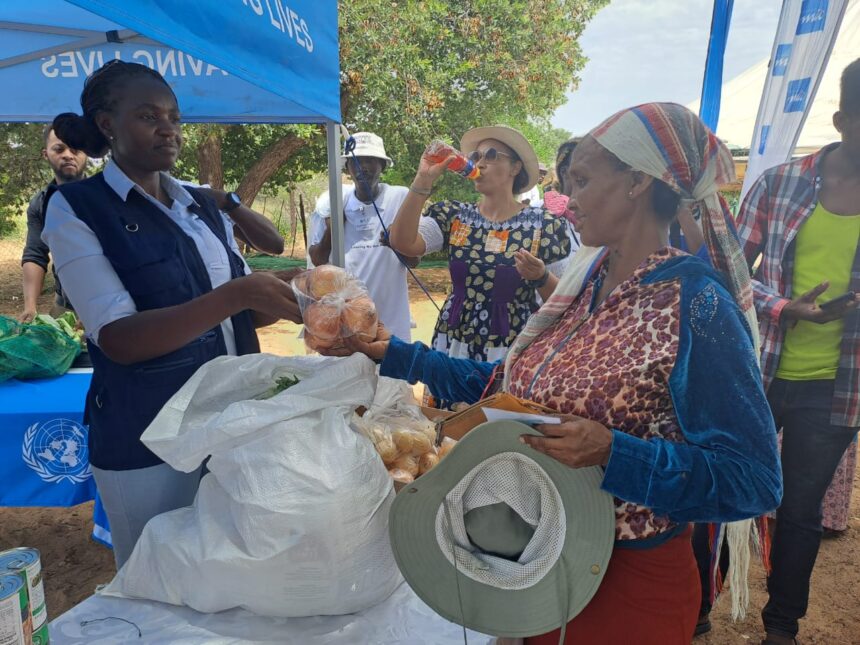Hilma Hashange
To mitigate the effects of escalating food and commodity prices and food insecurity in vulnerable communities in Namibia, the World Food Programme yesterday launched the Food Voucher Programme in collaboration with the Japanese embassy at Tsintsabis in the Oshikoto region.
Namibia relies heavily on food imports. With over 60% of Namibia’s food not produced in the country, combined with the effects of Covid-19, the Russia-Ukraine war that limited imports and escalated prices, and climate induced shock, the country is facing an eminent food crisis, especially in vulnerable communities.
The US$500 000 (N$9 million) project will support 17 712 people in Omaheke, Kunene and Oshikoto regions.
This includes 3 700 malnourished children under the age of five. Each family will receive a food value voucher equivalent to US$47 (approximately N$850) per month for three cycles by 31 March 2023.
This intervention is set to improve the nutritional dietary intake of targeted beneficiaries.
World Food Programme deputy country director in Namibia Ericah Shafudah, applauded the Japanese government for the vouchers, which she said will provide a safety net during the current food price crisis.
“The vouchers have lowered the purchasing power for communities highly susceptible to malnutrition and food insecurities,” said Shafudah, adding that with such interventions, targeted beneficiaries are set to improve the vulnerable communities nutritional dietary intake, thus curbing potential relapse into food insecurity. The Oshikoto governor, Penda Ya Ndakolo, who officially launched the programme, implored the beneficiaries not to sell their food items for any other means as it is meant to alleviate hunger.
“Agriculture is one of the key sectors in the region, most of the households engage in communal and commercial farming, therefore, I urge all stakeholders in agriculture to work together in creating a favourable environment in agricultural activities, especially here in Tsintsabis settlement,” he noted. Japanese ambassador to Namibia Hisao Nishimaki, Omaheke regional governor Pijoo Nganate and various regional councillors and dignitaries from all three beneficiary regions attended.
-Hilma Hashange is an information officer at MICT in Oshikoto.


